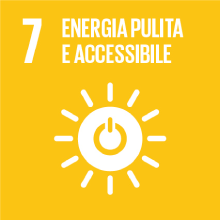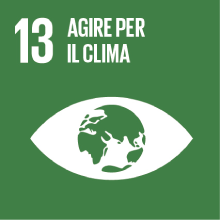HISTORY OF INTERNATIONAL RELATIONS ADVANCED COURSE
- Anno accademico
- 2025/2026 Programmi anni precedenti
- Titolo corso in inglese
- HISTORY OF INTERNATIONAL RELATIONS ADVANCED COURSE
- Codice insegnamento
- LM3140 (AF:582613 AR:323313)
- Lingua di insegnamento
- Inglese
- Modalità
- In presenza
- Crediti formativi universitari
- 6
- Partizione
- Classe 2
- Livello laurea
- Laurea magistrale (DM270)
- Settore scientifico disciplinare
- SPS/06
- Periodo
- I Semestre
- Anno corso
- 1
- Sede
- VENEZIA
- Spazio Moodle
- Link allo spazio del corso
Inquadramento dell'insegnamento nel percorso del corso di studio
Risultati di apprendimento attesi
(a) the consolidation of the students’ knowledge of some of the major international political processes of the second half of the 20th century, read through the lenses of "energy history" and "the history of energy sources."
(b) the acquisition of a secure knowledge regarding the intertwining of international politics and energy issues during the 20th century, with emphasis on oil and the second half of the century;
(c) the development of the ability to create a bibliography in international history, as well as to read it critically, also in the light of relevant primary sources;
(d) the development of the ability to formulate original and grounded interpretations of the interactions between specific state actors and changes in the international context, based on a close analysis of the events of the 1973 "oil crisis";
(e) the development of the ability to deepen one's knowledge in the field of international history in an autonomous manner, including through the conscious use of information technology and "artificial intelligence" tools;
(f) the development of the ability to communicate one's knowledge with coherence, clarity and precision, in both oral and written form, and to participate in informed debates on international affairs, even beyond the specific subject matter of the course.
Prerequisiti
Contenuti
Testi di riferimento
(a) the recommended readings indicated in the list below;
(b) the lecture slides available in Moodle (including any hyperlinked materials therein);
(c) the primary documents uploaded on Moodle for specific lectures;
(d) the guidelines for papers available in Moodle;
(e) the sources necessary for writing the final papers, to be tracked down independently, as per the guidelines for the final papers).
NB: The final list of recommended readings will be announced at the beginning of the course. Lecture slides, the primary documents and the paper guidelines are for all intents and purposes part of the course study material: not knowing their contents is equivalent to not having done part of the program.
Recommended readings (provisional list)
L. Scott, "International History of the Twentieth Century", in J. Baylis, S. Smith and P. Owens (eds.), The Globalization of World Politics, Oxford, Oxford University Press, 2016, pp. 54-69 (or any comparable text, after the teacher’s approval)
M. Cox, “From the end of the cold war to a new global era?”, in J. Baylis, S. Smith and P. Owens (eds.), The Globalization of World Politics, Oxford, Oxford University Press, 2016, pp. 70-83 (or any comparable text, after the teacher’s approval)
G. Arrighi, “The world economy and the Cold War, 1970-90”, in M. Leffler and O.A. Westad (eds.), The Cambridge History of the Cold War, Volume 3, Cambridge UK, Cambridge University Press, 2010, pp. 23-44 (or any comparable text, after the teacher’s approval)
D. Basosi, "Oil, Dollars and US Power in the 1970s: Re-Viewing the Connections", Journal of Energy History / Revue d’Histoire de l’Énergie, n. 3, 2020, www.energyhistory.eu/en/node/192, pp. 1-15
D. Basosi, "The decade of ‘the energy transition’: a critical review of the global energy debates of the 1970s”, in S. Gross, A. Needham (eds.), New Energies A History of Energy Transitions in Europe and North America, Pittsburgh, Pittsburgh University Press, pp. 107-118
F. Bösch, R. Graf, “Reacting to Anticipations: Energy Crises and Energy Policy in the 1970s”, Historical Social Research, Vol. 39, n. 4, 2014, pp. 7-21
G. Garavini, "Completing Decolonization: The 1973 ‘Oil Shock’ and the Struggle for Economic Rights", The International History Review, vol. 33, n. 3, 2011, pp. 473-487
G. Garavini, The Rise and Fall of OPEC in the 20th Century, Oxford, Oxford University Press, 2019, pp. 179-215, 221-229
R. Graf, "Making Use of the 'Oil Weapon': Western Industrialized Countries and Arab Petropolitics in 1973–1974", Diplomatic History, Vol. 36, No. 1, 2012, pp. 185-208
R. Graf, "Energy History and Histories of Energy", Docupedia-Zeitgeschichte, 2023, https://docupedia.de/zg/graf_energy_history_v1_en_2023 , pp. 1-48
J. Kreienbaum, “Between Panic and Feelings of Empowerment: Emotional Reactions to the First Oil Crisis and the Debate About a New International Economic Order”, New Global Studies, 2023, pp. 1-24
L. Maugeri, The Age of Oil, Westport, Prager, 2006, pp. 77-92, 93-102
F. Parra, Oil Politics, London, IB Tauris, 2004, pp. 7-22, 175-188
O. Sanchez-Sibony, “Energy and Soviet Economic Integration”, in E. Bini, G. Garavini, F. Romero, Oil Shock, London, IB Tauris, 2016, pp. 222-244
F. Venn, The Oil Crisis, London, Longman, 2002, pp. 7-20, 113-136, 145-172, 173-200
Modalità di verifica dell'apprendimento
The paper should deal with the reactions of a specific government (of the student's choice) to the "oil crisis" of 1973. The paper should demonstrate the acquisition of the notions and methodological tools presented in the course, the ability to connect the chosen topic to the global framework of the "crisis" and other international processes taking place in the 1970s, and the ability to structure a concise critical review of the "state of the art" on the chosen topic. Specific guidelines for paper preparation will be made available on Moodle during the semester.
The oral exam will include two main questions, aimed respectively at checking the study of the course’s program (first question) and at critically discussing the contents of the paper (second question). The first question will contribute about 40% to the final grade, while the overall evaluation of the written paper and the second question will contribute about 60%.
Students who wish to do so may substitute the first question in the oral exam by accepting the grade derived from a series of optional in-progress tests (multiple-choice quizzes and/or short open questions that will take place via Moodle during class time throughout the semester) and by answering a short "follow-up" question on the tests during the oral exam. Three in-progress tests are scheduled over the course of the semester. The grade for these tests will be the average of the two best scores and will remain valid for all exam sessions during the academic year. In order for the tests to replace the first oral question, at least two tests must be taken (and the short follow-up question in the oral exam must be answered appropriately).
In addition, those who wish to do so may present in class the preliminary results of their research for the paper in the last weeks of the course, according to a schedule that will be decided at the beginning of the semester (the presentation will receive a bonus grade between 0 and 1, to be added to the final grade).
Modalità di esame
Graduazione dei voti
1. a secure grasp of the historical concepts related to the program,
2. a secure grasp of the theoretical concepts of "energy history" and the "history of energy sources," as well as of the historiographical debate on international oil politics in the 20th century and on the 1973 "crisis" in particular,
3. a marked ability to independently create a solid bibliography, including some relevant primary sources, on the case study chosen for the paper,
4. a marked ability to critically process the information contained in the selected bibliography,
5. a marked ability to expound one's critical interpretation of such information in an original and coherent manner and with the appropriate language, both in written and oral form.
Each of the grades between 29 and 19 can obviously correspond to different combinations of the factors above. To simplify, let’s say that 28 implies some room for improvement in the grasp of the program’s notions or language precision; 26 implies room for improvement also in mastery of theoretical concepts and/or the historiographical debate on the 1973 "crisis"; 24 implies room for improvement also in critical interpretation and/or coherence of exposition; 21 implies wide room for improvement in all the dimensions considered.
A grade of 18 (i.e., "passing") corresponds to the demonstration of an evident commitment to the study of the program and to dealing with its conceptual aspects, as well as to the preparation, writing and exposition of the results of the paper according to the guidelines provided by the teacher, even in the absence of an evident maturation of all the expected teaching results.
The examination is considered failed where, in addition to insufficient maturation of the expected teaching outcomes, commitment to study does not appear evident either (e.g., paper drafted without regard to the guidelines provided by the teacher).
The grade 30 cum laude corresponds to 30 plus an outstanding demonstration of critical skills.
Metodi didattici
Altre informazioni
Obiettivi Agenda 2030 per lo sviluppo sostenibile
Questo insegnamento tratta argomenti connessi alla macroarea "Cambiamento climatico e energia" e concorre alla realizzazione dei relativi obiettivi ONU dell'Agenda 2030 per lo Sviluppo Sostenibile



